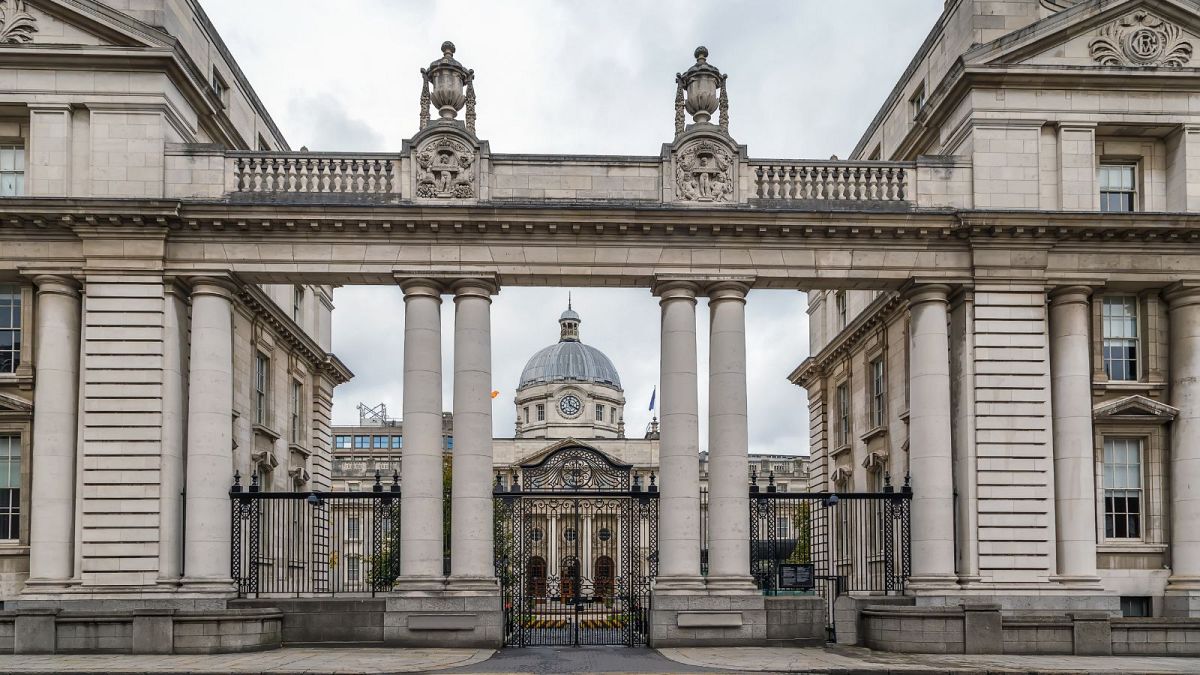This is the first climate lawsuit in Ireland that tackles fundamental rights, following a landmark European Court of Human Rights ruling.
A grandfather, a youth activist and a toddler are challenging the Irish government in court over inaction on the climate crisis.
In an intergenerational lawsuit filed last week, Irish community law centre Community Law & Mediation and three individual claimants say the government is breaking the law by failing to cut national emissions fast enough.
They want a declaration from the court that the Irish government is not complying with climate legislation and that its actions breach rights protected in the Irish constitution, the European Convention on Human Rights and the EU Charter of Fundamental Rights.
It is one of the first domestic cases to use a landmark judgment by the European Court of Human Rights earlier this year which determined that government inaction on climate change violates fundamental human rights.
Taking action on behalf of vulnerable and marginalised communities
Rose Wall, chief executive of Community Law & Mediation, says the lawsuit is being brought on behalf of communities that will be most affected by climate change but have the least opportunity to protect their rights.
“We know climate change poses a grave threat to human rights – that’s been well documented – and its impacts are going to be felt more by vulnerable and marginalised groups,” says Wall. “Community Law & Mediation seeks to serve as a vehicle for collective recourse for these communities and future generations.”
The group argues that Ireland’sClimate Action Plan 2024 is not strong enough to comply with the national climate law and its carbon budgets. The latest figures from Ireland’s Environmental Protection Agency show national greenhouse gas emissions at the lowest level in three decades, but still well short of national and EU climate goals for 2030.
The group also argues that the plan violates the fundamental rights of the three individual applicants, including their rights to life, dignity, health, equality and property as well as children’s rights.
‘The situation is still there and still urgent’
21-year-old Saoi O’Connor welcomed Community Law & Mediation’s invitation to get involved in the case. “I’ve been working on climate action since I was 16, mostly in Ireland, and banging my head against the wall,” they say.
Inspired by Greta Thunberg, O’Connor began a Fridays for Future strike in 2018, standing outside Cork City Hall each week for over a year. They have since spent a lot of time as an activist at international climate negotiations, addressing last year’s COP28 talks in Dubai on behalf of young people.
“The situation is still there and still urgent,” they say. “In 2019, we were at the forefront of the public consciousness, and now we’re not. I am open to literally anything to try and get them to do something, and this is something we haven’t tried before.”
The other two individual claimants are retired psychotherapist, climate activist and grandfather Philip Kearney and a toddler aged 20 months, who is represented by its mother and cannot be named.
This is the first climate lawsuit in Ireland that tackles fundamental rights, but not the only case that the Irish government is currently embroiled in.
In July 2020, the Irish Supreme Court issued a landmark judgment that Ireland’s emission-cutting plans fell “well short” of what was required to meet its climate commitments and must be replaced with a more ambitious strategy.
But although this decision resulted in the revision of Ireland’s climate law, campaigners were unsatisfied andlaunched a second lawsuit last year, also represented by Community Law & Mediation.
The Irish government said it would be inappropriate to comment on a matter that is currently before the courts.
Are climate issues best tackled by national or European courts?
Ireland also took a strong position in its responses to the first climate lawsuits at the European Court of Human Rights last year.
During public hearings in Strasbourg, it was adamant that questions raised in the case,brought by a group of older women against Switzerland, were matters for national policymakers and judiciaries. It warned the court not to not overstep its bounds.
Ireland also submitted a detailed addition to a joint state statement inanother climate case brought by a group of Portuguese young people. It claimed that the risks of climate change are “negligible in comparison to the environmental hazards of a modern city”, an attitude lawyers bringing the case described as “bordering on climate denial”.
“We’ve been very good at talking the talk,” says Wall, citing as an example the Irish parliament’s declaration of a climate emergency in 2019. “But we are the second worst per capita in Europe in terms of emissions. Our actual track record is pretty poor and we’re not heading in the right direction.”
She says a declaration from the court that the government was not doing enough and that it was breaching its citizens’ human rights would be a really powerful step “not just in terms of themselves, but in relation to all future climate policy”.

